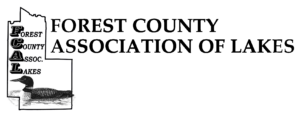Last week, I wrote that Lake Metonga had finally froze up. Well, this past week, there was a fishing boat out on the lake. They must have been catching fish because they were there most of the afternoon into the early evening. This event made me think of how climate change is impacting us here in Northern Wisconsin. Climate change is an undeniable reality that is reshaping ecosystems and weather patterns across the globe. While its impacts are felt globally, the effects on specific regions can vary significantly. Northern Wisconsin is witnessing a range of environmental transformations that demand attention and action.
One of the most noticeable effects of climate change in Northern Wisconsin is the alteration of temperature patterns. Winters are becoming milder, with a decrease in the duration and intensity of cold spells. I can’t remember another Christmas without snow. Conversely, summers are experiencing more frequent and prolonged heatwaves. These shifts in temperature patterns have profound implications for local ecosystems, wildlife, and the residents who have adapted to the region’s traditional climate.
The unique flora and fauna of Northern Wisconsin face challenges as the climate warms. Many plant and animal species are sensitive to changes in temperature and precipitation. Warmer winters may disrupt the hibernation patterns of certain mammals, while changes in precipitation can affect the availability of food for various species. Last winter, I swear I saw a dead possum on the highway outside of Laona. Forest County usually isn’t where they hang out. These alterations can lead to shifts in the distribution of species, potentially threatening the delicate balance of Northern Wisconsin’s ecosystems.
The region’s abundant water resources, including its lakes and rivers, are also under the influence of climate change. Rising temperatures contribute to changes in precipitation patterns, leading to more intense and frequent storms. This increased precipitation, coupled with thawing ice and snow, poses challenges such as flooding and soil erosion. Additionally, warmer temperatures impact water quality and can contribute to the proliferation of harmful algal blooms in lakes, threatening aquatic ecosystems and water supplies.
Northern Wisconsin’s agricultural and forestry sectors are integral to the region’s economy. However, climate change poses risks to these industries. Changes in temperature and precipitation patterns can affect crop yields, and an increase in extreme weather events may lead to more frequent disruptions in farming and logging activities. Adaptive measures, such as the development of climate-resilient crops and sustainable forestry practices, are crucial for the long-term viability of these sectors.
Beyond the environmental and economic consequences, climate change in Northern Wisconsin has social implications. Communities that have thrived for generations based on traditional weather patterns are now faced with the need to adapt to a changing climate. Infrastructure, such as roads and buildings, may need modifications to withstand more extreme weather events. Additionally, public health may be affected as the changing climate contributes to the spread of certain diseases and the exacerbation of existing health issues.
Addressing the impacts of climate change in Northern Wisconsin requires collective and proactive efforts. Local governments, businesses, and residents can collaborate to implement sustainable practices, invest in renewable energy sources, and develop strategies for adapting to the changing climate. Moreover, raising awareness about the specific challenges faced by the region is crucial for garnering support and mobilizing resources to protect Northern Wisconsin’s environment and communities.
Northern Wisconsin is at the forefront of experiencing the impacts of climate change, affecting its ecosystems, economy, and communities. Urgent action is needed to mitigate these effects, adapt to the changing climate, and preserve the region’s unique natural heritage. By fostering a sense of environmental stewardship and implementing sustainable practices, Northern Wisconsin can navigate the challenges posed by climate change and build a resilient and sustainable future.
